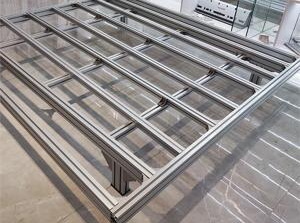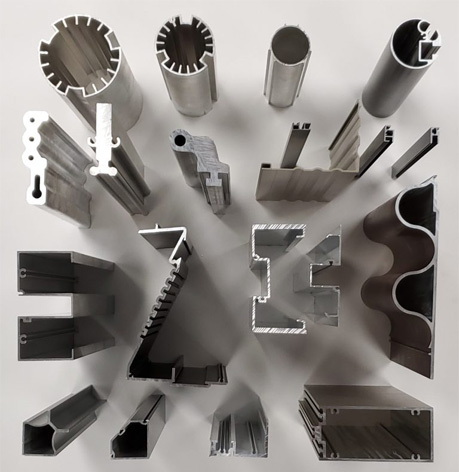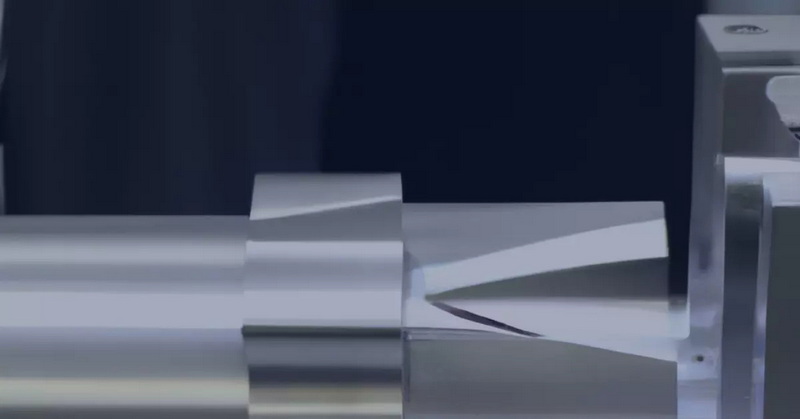Content Menu
● Introduction
● The Fundamentals of Aluminum Extrusion
● Advantages of Aluminum Extrusion for CNC Beds
>> 1. Exceptional Strength-to-Weight Ratio
>> 2. Excellent Thermal Management
>> 3. Corrosion Resistance
>> 4. Design Flexibility and Modularity
>> 5. Cost-Effectiveness
● Applications of Aluminum Extrusion in CNC Beds
>> 1. Desktop CNC Machines
>> 2. Large-Scale Industrial CNC Equipment
>> 3. Custom CNC Setups
● Comparing Aluminum Extrusion to Other Materials
>> 1. Steel
>> 2. Cast Iron
>> 3. Polymer Composites
● Best Practices for Implementing Aluminum Extrusion CNC Beds
● Future Trends in Aluminum Extrusion CNC Beds
● Conclusion
● Frequently Asked Questions (FAQ)
>> 1. How does the cost of aluminum extrusion CNC beds compare to traditional materials?
>> 2. Can aluminum extrusion CNC beds provide sufficient rigidity for high-precision machining?
>> 3. How do aluminum extrusion CNC beds handle vibration compared to cast iron beds?
>> 4. Are there any limitations to using aluminum extrusion for CNC beds?
>> 5. How easy is it to customize or modify an aluminum extrusion CNC bed after initial assembly?
Introduction
In the world of precision manufacturing and CNC machining, the choice of materials for machine components plays a crucial role in determining the overall performance, durability, and efficiency of the equipment. When it comes to CNC beds, aluminum extrusion has emerged as a popular and highly effective option, offering numerous advantages over traditional materials. This article delves into the reasons why aluminum extrusion is increasingly becoming the material of choice for CNC beds, exploring its unique properties, benefits, and applications in the context of CNC machining.

The Fundamentals of Aluminum Extrusion
Aluminum extrusion is a process that involves forcing heated aluminum through a die to create profiles with specific cross-sectional shapes. This versatile manufacturing technique allows for the production of complex and customized shapes that would be difficult or impossible to achieve through other methods.
The resulting extruded aluminum profiles are lightweight, strong, and highly adaptable, making them ideal for a wide range of applications, including CNC beds. The extrusion process begins with heating aluminum billets to temperatures around 900°F (482°C), at which point the metal becomes malleable but not molten. This heated aluminum is then forced through a die under high pressure, shaping it into the desired profile. As the extruded aluminum exits the die, it is cooled, straightened, and cut to the required length.
Advantages of Aluminum Extrusion for CNC Beds
1. Exceptional Strength-to-Weight Ratio
One of the primary reasons for choosing aluminum extrusion for CNC beds is its remarkable strength-to-weight ratio. Aluminum is significantly lighter than traditional materials like steel or cast iron, yet it offers comparable strength and rigidity when properly designed.
This characteristic allows for the construction of robust CNC beds that are easier to move and install, reducing the overall weight of the machine without compromising on structural integrity. The lightweight nature of aluminum extrusion CNC beds also contributes to improved energy efficiency in machine operation, as less power is required to move and position the components during machining processes.
2. Excellent Thermal Management
Thermal stability is crucial in CNC machining to maintain precision and accuracy. Aluminum extrusions excel in this aspect due to their high thermal conductivity. They efficiently dissipate heat generated during machining operations, helping to maintain consistent temperatures across the bed.
This thermal management capability contributes to improved dimensional stability and reduced thermal expansion, resulting in more accurate and repeatable machining processes. The ability of aluminum to quickly dissipate heat also helps protect sensitive components and extends the life of cutting tools by preventing overheating.
3. Corrosion Resistance
Aluminum naturally forms a protective oxide layer when exposed to air, making it highly resistant to corrosion. This inherent property ensures that aluminum extrusion CNC beds maintain their structural integrity and appearance over time, even in challenging environments.
The corrosion resistance of aluminum extrusions translates to reduced maintenance requirements and extended equipment lifespan, making it a cost-effective choice for CNC beds. This characteristic is particularly valuable in industries where machines may be exposed to moisture, chemicals, or other corrosive elements.
4. Design Flexibility and Modularity
The extrusion process allows for the creation of complex profiles with intricate internal structures, enabling designers to optimize the strength and functionality of CNC beds. T-slot aluminum extrusions, in particular, offer unparalleled modularity and flexibility.
These profiles feature standardized slots that accept a wide range of accessories and components, allowing for easy customization, expansion, and reconfiguration of CNC setups. This modularity is a significant advantage in rapidly evolving manufacturing environments, where the ability to quickly adapt machinery to new requirements is crucial.
5. Cost-Effectiveness
While the initial cost of aluminum extrusions may be higher than some traditional materials, the long-term benefits often result in significant cost savings. The reduced weight of aluminum extrusions leads to lower shipping and installation costs, while their durability and low maintenance requirements contribute to reduced operational expenses over time.
Applications of Aluminum Extrusion in CNC Beds
Aluminum extrusion CNC beds find applications across various industries and machining setups:
1. Desktop CNC Machines
Compact CNC routers and milling machines benefit greatly from aluminum extrusion frames and beds. The lightweight nature of aluminum allows for easy portability without sacrificing stability.
These machines are popular in small workshops, educational institutions, and prototyping environments where space and mobility are important factors.
2. Large-Scale Industrial CNC Equipment
Even in heavy-duty industrial applications, aluminum extrusion CNC beds prove their worth. The ability to create large, rigid structures with optimized internal geometries makes them suitable for high-precision machining centers. Large format CNC routers, used in industries such as aerospace and automotive manufacturing, often utilize aluminum extrusion beds for their combination of strength and lightweight properties.
3. Custom CNC Setups
The modularity of aluminum extrusions enables the creation of custom CNC beds tailored to specific manufacturing needs. This flexibility is particularly valuable in research and development environments or specialized production facilities.
Custom setups can include integrated workholding systems, specialized tool changers, or unique configurations designed for specific parts or materials.

Comparing Aluminum Extrusion to Other Materials
To fully appreciate the advantages of aluminum extrusion for CNC beds, it's essential to compare it with other commonly used materials:
1. Steel
While steel offers high strength and rigidity, it is significantly heavier than aluminum. This increased weight can lead to higher energy consumption and reduced machine portability. Additionally, steel is more prone to corrosion and requires regular maintenance to prevent rust. However, steel remains a popular choice for very large or heavy-duty machines where maximum rigidity is the primary concern.
2. Cast Iron
Cast iron has been a traditional choice for machine beds due to its excellent vibration damping properties. However, it is even heavier than steel and lacks the design flexibility offered by aluminum extrusions. Cast iron beds are also more challenging to modify or reconfigure once manufactured. The superior vibration damping of cast iron can be an advantage in high-speed machining applications, but modern design techniques allow aluminum extrusion beds to achieve comparable performance in many cases.
3. Polymer Composites
Some modern CNC machines utilize polymer composite beds, which offer good vibration damping and thermal stability. However, they may lack the long-term durability and modularity of aluminum extrusions, and their production process can be more complex and costly. Polymer composites can be an excellent choice for specific applications, particularly where chemical resistance or electrical insulation is required, but they generally don't offer the same versatility as aluminum extrusions.
Best Practices for Implementing Aluminum Extrusion CNC Beds
To maximize the benefits of aluminum extrusion CNC beds, consider the following best practices:
1. Proper Design: Collaborate with experienced designers to optimize the internal structure of extrusions for maximum strength and stability. Utilize finite element analysis (FEA) to identify and address potential weak points in the design.
2. Quality Assurance: Source aluminum extrusions from reputable manufacturers to ensure consistent quality and dimensional accuracy. Implement rigorous quality control measures to verify the specifications of received extrusions.
3. Assembly Techniques: Utilize appropriate fastening methods and connectors to maintain the rigidity of the CNC bed structure. Consider using specialized connectors designed for aluminum extrusions to ensure a secure and precise assembly.
4. Maintenance: Although aluminum extrusions require minimal maintenance, regular inspections and cleaning can further extend their lifespan. Develop a maintenance schedule that includes checking for loose fasteners, inspecting for signs of wear, and cleaning debris from T-slots and other critical areas.
5. Customization: Take advantage of the modularity of aluminum extrusions to create tailored solutions for specific machining requirements. Explore the wide range of compatible accessories and components available for T-slot extrusions to enhance the functionality of your CNC setup.
Future Trends in Aluminum Extrusion CNC Beds
As manufacturing technologies continue to evolve, we can expect to see further advancements in aluminum extrusion CNC beds:
1. Advanced Alloys: Development of new aluminum alloys with enhanced properties specifically tailored for CNC applications. These may include alloys with improved strength, wear resistance, or thermal stability.
2. Integrated Functionalities: Extrusion profiles with built-in cooling channels, sensor mounts, or cable management systems. This integration can lead to cleaner, more efficient machine designs with reduced assembly time.
3. Hybrid Structures: Combination of aluminum extrusions with other materials to create optimized CNC bed structures. For example, incorporating composite materials or steel reinforcements in critical areas to enhance performance.
4. Smart Manufacturing Integration: Incorporation of IoT sensors and connectivity features directly into aluminum extrusion profiles. This could enable real-time monitoring of machine performance, predictive maintenance, and improved process control.
5. Sustainable Manufacturing: As environmental concerns become increasingly important, expect to see a focus on sustainable production methods for aluminum extrusions, including increased use of recycled materials and energy-efficient manufacturing processes.
Conclusion
Aluminum extrusion has revolutionized the design and construction of CNC beds, offering a unique combination of strength, lightweight properties, thermal management, and design flexibility. As the manufacturing industry continues to demand higher precision, efficiency, and adaptability, aluminum extrusion CNC beds are well-positioned to meet these evolving needs.
The advantages of aluminum extrusions, including their excellent strength-to-weight ratio, corrosion resistance, and modularity, make them an ideal choice for a wide range of CNC applications, from compact desktop machines to large-scale industrial equipment. By leveraging the benefits of aluminum extrusion, manufacturers can create CNC setups that are not only high-performing but also cost-effective and future-proof.
As we look to the future, the continued innovation in aluminum extrusion technology promises to bring even more advanced solutions to the world of CNC machining, further cementing its position as a material of choice for CNC beds and beyond. The ongoing development of new alloys, manufacturing techniques, and integrated functionalities will likely expand the capabilities of aluminum extrusion CNC beds, enabling more precise, efficient, and versatile machining solutions across various industries.

Frequently Asked Questions (FAQ)
1. How does the cost of aluminum extrusion CNC beds compare to traditional materials?
While the initial cost of aluminum extrusion CNC beds may be higher than some traditional materials, they often prove more cost-effective in the long run. The lightweight nature of aluminum reduces shipping and installation costs, and its durability and low maintenance requirements lead to lower operational expenses over time. Additionally, the modularity of aluminum extrusions allows for easier upgrades and modifications, potentially saving costs on future machine improvements.
2. Can aluminum extrusion CNC beds provide sufficient rigidity for high-precision machining?
Yes, when properly designed, aluminum extrusion CNC beds can provide excellent rigidity for high-precision machining. The key lies in optimizing the internal structure of the extrusions and using appropriate assembly techniques. Many manufacturers successfully use aluminum extrusion beds for applications requiring tight tolerances and high accuracy. The combination of structural design and the inherent properties of aluminum allows these beds to maintain stability during machining operations.
3. How do aluminum extrusion CNC beds handle vibration compared to cast iron beds?
While cast iron is known for its superior vibration damping properties, aluminum extrusion CNC beds can be engineered to effectively manage vibration. This is achieved through careful design of the extrusion profiles, incorporation of internal ribbing, and the use of vibration-dampening materials in critical areas. Some designs even combine aluminum extrusions with other materials to create hybrid structures that offer both lightweight benefits and excellent vibration control. In many applications, the performance of well-designed aluminum extrusion beds is comparable to traditional cast iron beds.
4. Are there any limitations to using aluminum extrusion for CNC beds?
While aluminum extrusion offers numerous advantages, there are some considerations to keep in mind. Very large or heavy-duty machines may still benefit from traditional materials like cast iron or steel for maximum rigidity. Additionally, in environments with extreme temperature fluctuations, the higher thermal expansion coefficient of aluminum compared to some other materials may need to be accounted for in the design. However, for a wide range of CNC applications, these limitations can be effectively addressed through proper engineering and design strategies.
5. How easy is it to customize or modify an aluminum extrusion CNC bed after initial assembly?
One of the significant advantages of aluminum extrusion CNC beds is their modularity and ease of modification. T-slot profiles, in particular, allow for simple addition or removal of components without major disassembly. This flexibility enables users to easily upgrade their machines, add accessories, or reconfigure the setup for different applications. The ability to make changes quickly and efficiently is a major benefit for businesses that need to adapt their manufacturing processes frequently or want to future-proof their equipment investments.













